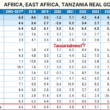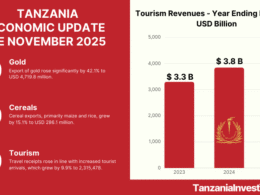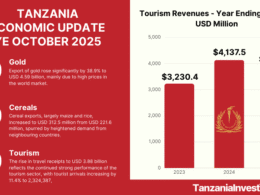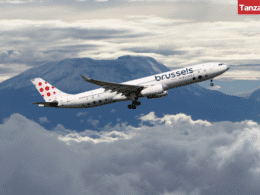The Tanzania tourism sector has recently completed a feasibility study which investigated how best to work with the US program, ‘International Year of Planet Earth,’ in order to market the mass migration of wildebeests in the Serengeti National Park through the use of the program’s website various television broadcasts.
The primary target for this campaign will be Western youths and middle aged people who search for and choose their tourism destinations with the aid of the internet.
According to Tanzania’s Minister for Natural Resources and Tourism, Shamsa Mwangunga the study has revealed that the country will indeed benefit from this cooperation.
Ms. Mwangunga went on to explain that, although the country’s tourism sector had been effected by the global financial crisis, the government had been able to take the appropriate steps to counteract these effects including asking the owners of hotels, lodges and tour operators to improve their services.
These remedial steps resulted in the overall collections from the sector surpassing the target that was set in 2008/09 by 6%, having estimated earnings of TShs1.7 billion from licenses and ultimately receiving earnings of TShs1.8 billion from 468 firms in eleven months.
In addition to its promotion of foreign tourism, the country also worked to promote domestic tourism to its 14 national wildlife parks as well as national museums and the Ngorongoro crater conservation area.
As a result, the number of domestic tourists to these destinations increased from 536,341 local tourists in 2007/08, to 637,749 in 2008/09.
According to President Jakaya Kikwete, who spoke recently at the inauguration of a new hotel in the Serengeti National Park, tourism is one of the fastest growing sectors in the country.
“It has been growing at 12% for the last three years, and its contribution to GDP has been 17.2%, while it is contributing about 25% of our foreign exchange earnings,” he said, “But, we in government understand that the growth of this sector does not simply depend on the abundance and the beauty of tourist attractions. Tourism infrastructure […] plays an important role in the growth of the industry.”
President Kikwete went on to say that he believed it was possible for the tourism sector to grow even faster after the country was able to overcome several of the challenges facing the sector, including travel facilitation and inadequate human resources.
In order to achieve an increase in the quality of services offered by the country’s tourism sector, the government is currently working to complete the construction of the county’s highest tourism college.
The college, which is being built with French financial assistance, is expected to be ready by December.










